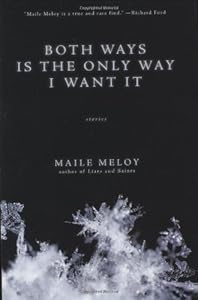Have you ever read a book you were certain you would despise?
Someone forced it on you, for one reason or another—class or a kindly but pushy relative—and every ounce of you resisted. You took the loathsome lump of a novel in your hands and a frown unfolded from every crook in your body. Your mouth turned down at the sides, your shoulders slumped, your stomach boiled with an unpleasant acid, and you turned to page one.
Stupid, you thought. Stupid, stupid, stupid. Trite. Dull. Idiotic.
But, if you were lucky, something else started to happen. That relative of yours, who’s actually very intelligent aside from his prescriptions for your life and your reading habits, maybe have given you something good. You squinted your eyes at the page. The acid in your stomach slowly subsided, then transformed. Your dull aching dread became something light—a nervous, floating excitement—and suddenly, beautifully, you were hooked.
Watch out. A book like that can be dangerous. Afterward, you might find yourself irrevocably altered. You might return to that book, year after year, and find it like a lover you can’t quite bleach from your heart.
This week, I finally sat down to read Maile Meloy’s Both Ways is the Only Way I Want It, that grim frown of reluctance present even as I flipped past praise from The New York Times and one of my favorite and most respected authors, Richard Ford.
The truth is, my reluctance to this particular work was born from my own embarrassment. Last year Ms. Meloy came to read at Vanderbilt, and though I enjoyed the reading, I was having a fit of awkward. It comes on sometimes, despite my best intentions at nonchalance, and there I was, fidgeting and unable to speak, when after she sat in the hallway outside the reading room, selling and signing copies of her book behind her plastic foldout chair. The book was around $15—a price I didn’t feel like paying at the time—and there I was in front of her, feeling the money drawn from my hands, and gasping out stupidly that I loved Montana, too! She signed it “For Liz, a fellow Big Sky fan,” and I left feeling outraged at my own jellyfish spine, convinced I would never read her book, more out of principle than anything else.
Over the next few months, I glowered at the book on my shelf. I felt upset when The New Yorker published her story “The Proxy Marriage” in May, and even more upset when I actually enjoyed it. When another story of hers, “Demeter,” was published in The New Yorker two weeks ago, I decided to bring Both Ways home for Thanksgiving break—not to read it, but to pass it off to someone else, so I wouldn’t have to look at it anymore. The book was abandoned to a countertop, and then my cousin—also a writer and reader—picked it up.
“I don’t know about that one,” I said, eyeing it narrowly as she flipped through the first pages. “Don’t blame me if it’s bad.”
But soon she had finished the first story, and over the course of the day, juggling her 6-month-old on her arm, my cousin read Meloy’s book. At 11 p.m., she was still reading. All I can say is that I was confused. When I went to bed around midnight, my cousin stayed up with the book.
The next morning I asked her how it went. Guess what? She’d loved it.
So I began to reconsider. After all, it was a New York Times Notable Book of the Year. After all, my revulsion at the read was petty, idiotic, and nonsensical.
“You’ve got to read it,” my cousin said. “Really.”
“Okay, okay,” I said.
I packed it in my bag, drank a glass of wine as I waited in the airport, and flipped through the pages to the first story. Then I read the second story, the third, and the rest of the book over the next week.
Oh my Lord, was it good.
As George R.R. Martin once said, “A reader lives a thousand lives before he dies. The man who never reads lives only one.”
For me, good fiction occurs when you are shocked into the consciousness of a fully realized character, in a fully realized situation. Good fiction opens us up to new identities. What’s so wonderful about Meloy’s Both Ways is the Only Way I Want It is that it allows the reader not just to have new experiences, but also to return to something recognizable—to encounter a long lost feeling—really a kind of subconscious tone of experience that’s been buried deep or glossed over by its banal surface. Her stories strike deep emotional notes subtly, gracefully, and with almost no visible artifice. It’s astounding.
As Curtis Sittenfeld put it in his review of Meloy’s collection, “They are people who act irrationally, against their own best interests — by betraying those they care about, making embarrassing romantic overtures and knowingly setting in motion situations they’d rather avoid — and Meloy’s prose is so clear, calm and intelligent that their behavior becomes eminently understandable.”
He goes on to say that her characters act with “a kind of banal, daily desperation”—perhaps that’s the feeling I recognized in myself, when reading her prose.
Every page I turned I heard myself apologizing to Meloy in my head—I’m sorry, I’m sorry, I’m sorry—how could I have dismissed her, this?
At the same time, though, I’m happy with how things turned out. If you’ve hardened your heart to a book, and the prose stills find a way to maneuver through that tough casing, you know you’ve come across something great, something beautiful, that will be a part of you for a long time. Maybe forever.
![]()


